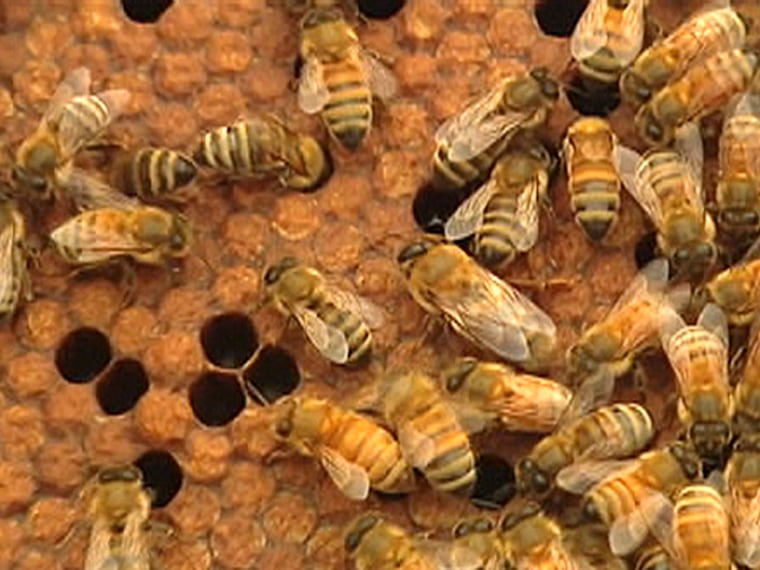Have you heard about the corporation that plans to make a quick buck from the global disappearance of honeybees?
"A future without honeybees means a future of human pollination," according to a promotional video from BeABee Inc. "That's right: people trying to pollinate plants flowers and crops by hand. That's the reality we're facing, and you can get in on the ground floor. ... Don't miss out on what can become a $16 billion industry."
Are you outraged? Good. That's what Zeke Freeman is looking for.
"We were hoping to anger people, and we definitely did," said Freeman, co-founder of the Brooklyn-based honey producer Bee Raw. "And we got the attention of people whose attention we don't normally get."
Bee Raw worked with CHI & Partners, a New York ad agency, to create the fake BeABee website as well as the YouTube video and the @BeABeeInc Twitter account — all with the objective of raising awareness about the plight facing the nation's honeybees.
"Most environmental movements focus on positive advocacy," CHI & Partners' Michael Goldstein told NBC News. "We wondered what would happen if we did some negative advocacy that fueled a positive result."
If Internet users click on any of the links on the BeABee home page, they see a message reading, "BeABee Inc. doesn't really exist. But if we don't act now, they could." They're also given the option to order flower seeds, sign a pledge to provide more pesticide-free acreage for the bees, or donate to Bee Raw's Save the Bees Fund — which goes to nonprofit organizations such as the Xerces Society.
The social-media sting operation has been stoked by tweets from celebrities such as Samuel L. Jackson and Christy Turlington. It has also stung a few tweeters who protested that BeABee was a "messed up" or "horrible" idea.
Although BeABee Inc. is fake, the facts cited on the webpage are pretty close to the truth: The U.N. Food and Agriculture Organization says pollinators (including birds and bats as well as bees) really do affect one-third of the world's food crops. About 30 percent of America's bee colonies really were lost during the winter of 2012-2013. And farmers in China really do employ "human pollinators" to give fruit crops a boost.
Freeman said online traffic to his website has jumped almost 1,000 percent since the BeABee campaign started on Tuesday, and about 1,200 people have signed the site's pesticide-free pledge. "I would say we've been pretty darn successful," he said. But he doesn't intend to shut down BeABee Inc. anytime soon. Freeman said the website and the Twitter account will remain active, serving as a "monument and a reminder" that continues to sting ... our conscience.
More about the bee crisis:
- Report says bee die-off has complex causes
- Mass bumblebee death reported in Oregon
- EPA speeds up pesticide review
- Cosmic Log archive on bees
Alan Boyle is NBCNews.com's science editor. Connect with the Cosmic Log community by "liking" the NBC News Science Facebook page, following @b0yle on Twitter and adding the Cosmic Log page to your Google+ presence. To keep up with NBCNews.com's stories about science and space, sign up for the Tech & Science newsletter, delivered to your email in-box every weekday. You can also check out "The Case for Pluto," my book about the controversial dwarf planet and the search for new worlds.
